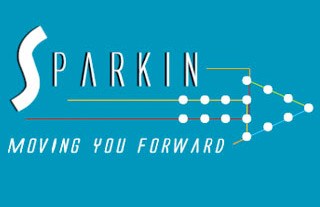
Narrate Newsletter
Topics
- Adaptability (29)
- Barriers to Success (17)
- Career (1)
- Career Optimization (90)
- Career Planning (13)
- Client Side vs Agency Side (7)
- Empathy Award Winners (10)
- Freelancing (6)
- Great Places to Work (4)
- Humor and Music (1)
- Job Searching (35)
- Job Security (23)
- Personal Branding (7)
- Purpose-Driven Brands (5)
- Soft Skills (77)
- Strategic Planning Market (21)
- Strategists (29)
- Trends (11)
- Trusted Advisor (27)
- Uncategorized (4)
- Virtual Work Considerations (3)
- Work Life Balance (32)
- Working Overseas (1)
Do you want to show up more creatively for your clients and your colleagues, your family, and your friends?
Do you want to default to thinking about opportunity versus focusing just on problems?
Discovering Hope is full of proactive steps you can take right now, to achieve a more positive mindset or to help maintain the positivity you already have
Getting Positive reveals that more optimism is close at hand


Barriers to Success
Ageism – Is It Just About Our Age?
When applying for a job, (or working in a job) everyone wants a fair chance to be hired and to progress.
But, decisions are often made for reasons not strictly based on merit.
However, when we experience impartiality, is it purely our ‘age’ that explains the unfair treatment we have experienced?
What’s Behind Age Discrimination
Understanding that very often the cause of age-related discrimination is about the amount (and type) of experience you have illustrates that young people are discriminated against too! Too little experience – ‘young-age’ discrimination).
The truth is, given the right context, most people will discriminate and be discriminated against so, a few potential steps to counter this discrimination:
– Do your homework-Understand the culture and specific needs for hiring organisations you apply to (If possible)
– Take steps to actively compensate for these biases
– Where discrimination occurs, be prepared to challenge bias.
Finally, have a look at some linked articles attached.
All the best, Stuart
Articles – Counteracting Age Discrimination
- How agency’s/Company’s Can Mitigate Age Discrimination
- Combatting age discrimination during interviews
- Job Interviews – Approaches to Counter Age Discrimination
- Strategies to Counter Age Discrimination
Articles – Recognising Age Discrimination/How it Manifests
Poor Mental Health Can Afflict Anyone
Almost like being fired at some stage of you career is a ‘right of passage,’ experiencing excessive stress is also something most of us face. We need to collectively support those at this stage. Why?
Because it could easily be you. However calm your life journey is, if placed under sustained and excessive stress, ‘you’ may well at some stage experience adverse mental health and in the worst cases, breakdown.
One mid-level creative strategist I spoke with recently, who works for a large advertising agency, described both a lack of organizational preparedness for her hiring or management support once she’d been hired. The irony is that this is someone that is extremely capable. As she explained, after starting her job she quickly became trusted to take on extra work and responsibility, initially welcoming it but then after it happened a number of times, engulfing her initial job description but with no additional support, she felt increasingly helpless. She had tried to communicate but no one appeared to be listening. The effect was someone with no prior ‘mental’ health issues, becoming anxious, seriously starting to doubt themselves, struggling to get their work done each day. This is far from uncommon.
Positive mental health is defined as ‘Coping with normal stresses and having psychological well-being.’ Fair enough, but what are normal stresses? And, what is psychological well-being? A simple answer might be that whatever your challenges, if you feel in control, even though under pressure, you are functioning effectively and your behavior is rational.
A 2018 Forbes Survey reported that 48% of interviewees experienced mental health problems. While another survey highlighting the effects of sustained mental stress, found that 29% of employees had shouted at their cohorts because of stress! (Tinypulse, 2016).
The American Institute of Stress cited the main causes of stress in the workplace listed: 46% workload, 28% people issues, 20% work/life balance and 6% lack of job security. Other factors certainly causing extreme frustration included: Low wages, lack of personal development and having no say/not being listened to and worse, being mistreated.
I should state, I am ‘not’ a mental health expert but what lead me to write this article is regular conversations with extremely stressed individuals, either desperate to make their current situations better if not to completely escape them. I have also experienced what I am writing about remembering as a young man, having after months of intense pressure at work walking out of my office, teary eyed. I’m still embarrassed as I think about this! But, people shouldn’t be!
On what appears to be ever increasing pressure on businesses and employees, what seems immediately evident is this: As an employee, if you’ve given management and/or HR repeated opportunity to understand your situation and nothing has changed, why put up with this? If those with the authority and ability to change things haven’t, even when understanding your situation, then either they can’t or don’t want to do anything differently and you must draw your own conclusions. Why would you remain an employee in an agency where you are treated this way?
The corporate answer to mental health is, ‘it’s complex’ and to be fair, it is. There are often many factors in play. Then again if you want to set individuals up to be the best they can be for themselves and the agency, it isn’t complex at all! It’s a matter of priorities and most important, effective communication and resource deployment. This is down to management.
Critically, whatever the cause of high stress levels, if not checked the positive psychology of individuals becomes vulnerable to feelings of failure in absolute or relative terms.
How to stay ahead of the Curve – Positive Mental Heath – Some Steps We Can All Take
At Work
1. ‘Never’ feel trapped. However much the money is needed, or you fear not getting another job, or fear the recriminations from leaving the job or how bad leaving might look on your resume, ‘if the stress level in your work situation is out of control’ and having spoken to others (boss/HR/mentor/peers) things are not changing, then understand, there are other jobs! Your psychology is number one priority. Be prepared to walk.
2. Talk – Stay ahead of the stress – Many of those I talk with, simply want to be heard. More important, aim to communicate with those that have the wherewithal to redress the causes of your stress. Let your boss know what’s happening/how you’re feeling – Many of us don’t do this either because this communicates weakness and perhaps a sense of failure, or because you don’t think anything will change – The realty is, nothing can change if those with the authority don’t know what you’re going through.
3. Let someone else know – If you can’t communicate with you boss, then find a mentor, someone you can trust, that can atleast listen.
4. Understand your areas of vulnerability – For instance you’re stressed by certain work situations or feel relatively weaker in a skill area. Talking this through is a key step to developing coping mechanisms and reducing stress.
5. Are you being fair with yourself – So much of the causes of stress relate to our own standards and expectations, our perceived feelings that we are either simply failing or more insidious, we are failing relative to are peers.’ The best antidote to this is to understand that it’s extremely difficult to have a ‘fair’ like-for-like comparison with your peers. So, the best course is to avoid the comparisons. I know, easier said than done.
6. Set yourself up to succeed – Much of the cause of work-related stress is related to helplessness. So, break your work down and set yourself discrete goals that can be achieved. It’s not the whole job, but feeling you are progressing on some level is key.
7. Goal Setting – If the goals are causing the angst, let those that need to know why they will be difficult to achieve.
Away From Work
1. Non-work mentor – Talking with someone that is not vested in your workplace, that can listen to you without an agenda. If nothing else, this an opportunity to be actively heard.
2. Exploratory meetings – There’s nothing worse than feeling trapped and undervalued. Having exploratory meetings with other potential employers will often reveal both that you’re not trapped in your current role and that your expertise and experience is valued in the marketplace. If nothing else you will feel more confident at work knowing you could work elsewhere.
3. De-Stress – If you’re working crazy hours often you can’t find time, but whether burning up emotional energy on the treadmill or releasing safety valves via tai chi, the safety valve needs to be released!
4. The power of the ‘all absorbing’ – Pursue an interest/s that completely absorbs your mind so freeing it from thinking about work. Having a ‘real break’ is a key ingredient in the positive mental health of those that seem to be able to compartmentalize different areas of their lives. As a priority, find what allows you to switch off.
What woud you suggest as the one key thing to do in managing or mitigating the effects of stress?
For more detail on this topic – http://bit.ly/30BMsiM
Excessive Stress – We’re All Vulnerable
Experiencing excessive stress is commonplace in today’s world. But, it can feel like one of the loneliest places to be.
Stress shows up for different reasons, a number expounded in the attached video http://bit.ly/2YA4vUC and covered in most recent blog http://bit.ly/2VTPpwd
What’s key for you? Knowing yourself/recognising your areas of vulnerability and, planning to work to your strengths.
What’s also really important for you, knowing how to effectively manage the stress you do experience.
While there are a number of suggested palliatives for stress, key is that you don’t bottle things up and ‘communicate.’ And finally remember, you ‘always’ have options and you are ‘never’ truly alone.
All the best,
Stuart
PS. Recent SPARKIN blog on Stress at work http://bit.ly/2VTPpwd
Articles about recognising the signs of stress.
- https://www.webmd.com/balance/stress-management/stress-symptoms-effects_of-stress-on-the-body#1
- https://trans4mind.com/counterpoint/index-communication-relationships/uebergang2.shtml
Articles about preventing stress.
- https://www.apa.org/helpcenter/work-stress
- https://www.health.harvard.edu/mind-and-mood/best-ways-to-manage-stress
- https://www.sharecare.com/health/stress-reduction/effective-communication-reduce-my-stress
Articles about coping with stress.
Biased Thinking – The Anti-Strategist
Judging a book by its cover is not a smart thing to do but we all do it, subconsciously if not consciously.
‘The eye sees only what the mind is prepared to comprehend’ (Henri Bergson)
Effective strategists require many skills but if those they interact with don’t have a fair chance of being heard, they will not accurately represent them; They will fail to be the ‘voice of the consumer.’
We are all biased about everything, however open mnded we think we are. We are even biased about ourselves.
https://www.youtube.com/watch?v=Bq_xYSOZrgU
So how do we get an open mind and escape the bonds of our upbringing and past experience?
A few potential steps:
– Understand where your biases lie and recognise them..
– Be determined to challenge these biases.
– Take steps to actively compensate for these biases.
Finally, have a look at some articles to help recognise and to compensate for your biases.
All the best,
Stuart
- Articles and commentary that might be of interest…
- Articles about our biases and how to recognise them
- The difference between open and closed-minded people
- Understanding prejudice. How it forms and how to prevent it
- Why do prejudice and discrimination exist
- Prejudice comes from a basic human need
- Articles about how to ensure ‘neutral’/Open listening
- A new way to become more open-minded
- Prejudice and discrimination
Job Security – Do We Ever Have it?
Client losses, mergers, bankruptcies….they can all take down the most talented of professionals, even if they have been performing.
In the face of often uncontrollable risks there is only one thing to do; Proactively take responsibility for your career and not simply when you need a new job.
The easiest path to enhancing job security is to do a great job. This is easiest to do when you’re, in the right environment, using your strongest skills and experiences, behind a mission you believe in and with the right management and team support.
Being in the ‘right’ job at any time requires on-going self awareness of the contribution you are making; This will allow you to better manage your prospects.
Given what can go wrong even when you are performing, it’s key that you have an eye on the future and invest time in understanding what you do truly well and where you add value. This will in turn reveal any number of other career areas where your skills are readily transferrable. This in itself is empowering, as for true job security, do we ever have it?
I’m looking forward to talking to you about your current and future career plans. What do you think is the biggest threat to your job security?
Stuart
Articles and commentary that might be of interest…
- How to make yourself indispensable at work
- Improving career development
- 9 habits to help you manage your career
- How to manage your career in 8 steps
- 14 tips to effectively manage your career
- Jump-start your career change
- 5 ways to ensure your boss knows how awesome you are
- How to make yourself indispensable
Avoiding A Career Ambush – Be Alert and Bring Your ‘A’ Game

Strategic planners on the fastest career track know that getting to the truth of a client’s challenge is key. It’s is equally vital to understand the truth of the consumers served by your clients.
Getting to a genuine understanding of your client’s business gives you a chance of being relevant and better still, of moving the client forward.
In one of life’s great paradoxes, the strategic planner plays the role of the cobbler that wears no shoes/do not do for themselves what they instinctively do for others. That is, apply the same strategic nous and tools to obtaining authenticity when it comes to understanding a genuine career opportunity from a dud.
I hear of almost daily tales of candidates that got duped. But, the storytellers typically don’t see that they are complicit.
New career enhancing roles lie before them and rather than clarify the fundamentals that will define their success in a new role, much is taken at face value. Naiive? Or, a commendable illustration of their trust? It doesn’t matter. The carnage is the same.
Some basics. Whenever you are considered for a career opportunity, it is your knowledge and experience that is sought after. It is perceived to be able to solve one of a range of challenges facing your prospective future employer.
Ultimately what your future employer is seeing is your ability to either help save or make money and preferably both! And this is where it can get dangerous, for you!
The more your perceived ability to make money combined with urgency by the agency to make a hire, the more exponential the chances that they will avoid communicating, miscommunicate or incorrectly communicate information that might otherwise deter you from taking the job.
I don’t mean to say that hiring managers intentionally mislead. I am saying that many people under enough pressure, hiring manager or agency with a pressing client need, may be economical with the truth. This may help relieve client pressure whilst unfortunately not be optimal for you.
The Group Director hired to become a Head of Strategy takes the job because the agency is independent, moves countries and finds out one month in that the agency is being bought by a holding company.
The Director that moves across country to discover one month in that the client, that they moved their lives for, is leaving the agency.
Clearly the agency has to do what it has to do and perhaps the hiring manager or the department head is not party to much larger forces at play. The take out is therefore, you as the individual seeking a career enhancing move have to be alert!
You have to employ that smart truth revealing expertise to your career and most certainly at the inflexion points of progression from one job to another.
To be fair to those hiring, the more ‘you’ want an opportunity at a certain brand or agency, the more you will compromise, the more details you will overlook, the less you will be ‘on your game’ to understand exactly what you might be getting in to.
Indeed, far from applying healthy skepticism that engenders a pragmatic understanding that what one is being told is correct, you seek to reinforce your perceptions of what you want to hear. And, you fail to see the pitfalls.
When you are ‘on,’ you do not ask limiting questions but bigger questions in your quest to understand the truth. You in this mode are in control and driving your quest versus passively being drawn into a career ambush.
Getting to a Robust Understanding of a Job Opportunity – Some thoughts
- Know what do you want to do next
- Know what outputs you want to generate
- Know what defines your success in a new role
- Know what resources are available and timelines in which to achieve specific goals
- Know whether your goals align with those of the leadership of the prospective employer.
- Seek out not ‘sexy’ agency but dynamic client relationships, wherever they are and with them the opportunity for good work
- Seek out those clients that value your expertise and better still the employers that value your expertise equal or (even better for you) over and above other disciplines.
- Clarify where money is made – This is definitive proof as to what the agency says is does reconciles with what it does.. Good to know!
- Ask better questions that reveal the truth to you and not choreographed answers.




